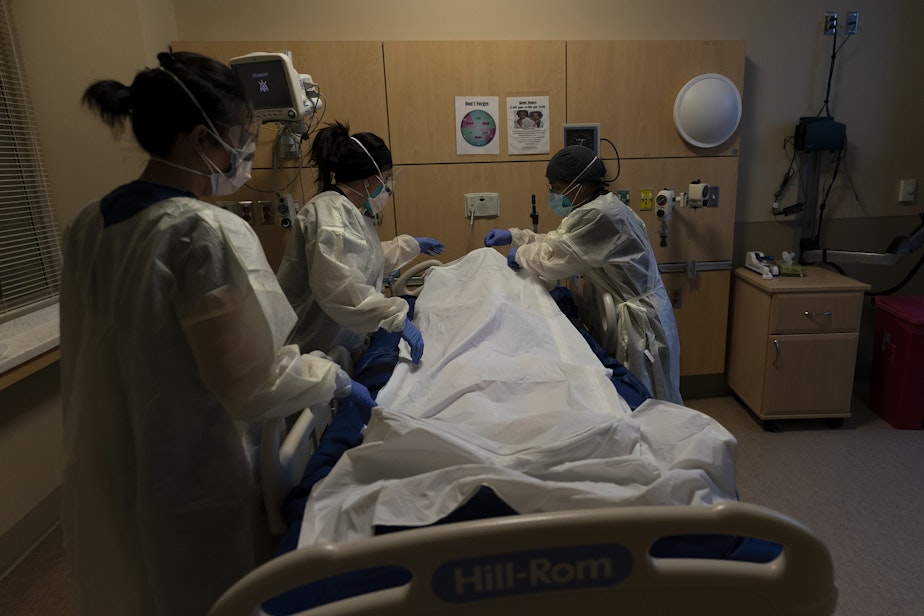'The worst' it's been: Covid hospitalizations reach all-time high in Washington

Since the highly infectious omicron variant was discovered in Washington state last month, health officials have warned that a surge in cases could cause hospitals to become severely overwhelmed.
Health care workers say that moment is now here.
“This is the worst situation hospitals in Washington state have been in compared to any prior point during the pandemic,” said Taya Briley, vice president and general counsel for the Washington State Hospital Association during a press conference Thursday morning.
Thursday afternoon, Governor Jay Inslee announced that he would deploy 100 National Guard members to assist four of the state's hospitals and has ordered a pause on non-urgent procedures.
RELATED: Inslee deploying 100 National Guard to help hospitals, orders pause on non-emergency procedures
Briley said that Covid hospitalizations, which are currently at a weekly average of about 1,800, have now exceeded a previously recorded high of approximately 1,700 per week in September 2021. An average of 149 Covid patients currently need ventilators — that's up 16% from last week's average of 129 patients, she added.
Briley also cited a 65% increase in Covid-19 cases and an average of 226 new hospitalizations per day over the past week. She said the majority of those hospitalizations have been among patients who aren't vaccinated, have received a single shot, or haven't gotten a booster.
Sponsored
An average of roughly 13,000 new Covid cases per day have emerged in the past week, according to the latest data published by the state Department of Health. The latest data also projects that daily case counts are on trend to increase to nearly 15,000 per day by the end of this week.
Hospital workers have pointed to ongoing capacity limitations in recent weeks, driven by a surge of long-term care patients who would normally receive care in places like assisted living facilities, staffing shortages, and now a wave of omicron infections. As a result, hospitals are being forced to postpone non-urgent surgeries and procedures.
RELATED: 'Bursting at the seams.' WA hospitals feel the pinch of long-term care shortages
Despite the current outlook, Washington’s hospitals are not officially operating under crisis standards of care, under which resources like ICU beds and ventilators would be rationed. But Briley said many hospitals have taken it upon themselves to function using contingency and crisis staffing models.
“When we are doing this, it means that we are deviating from our normal staffing patterns due to a lack of available staff, or rapid or unexpected increase in demand for services, or both,” she said. “Hospitals operating at these levels will be taking a number of steps to make sure all patients who need care can receive it.”
Sponsored
Briley and other health care leaders have urged state lawmakers to act fast in aiding hospitals. The Washington State Hospital Association is advocating for laws that make placement processes for long-term care patients move faster, increase funding for nurse education programs, and add flexibility to hospital staffing rules, among other policy changes.
“This is not a time for deliberating,” Briley said.
Health care professionals are urging people to complete their primary Covid vaccinations and get boosted when eligible, as well as use medical grade face masks when in public.




